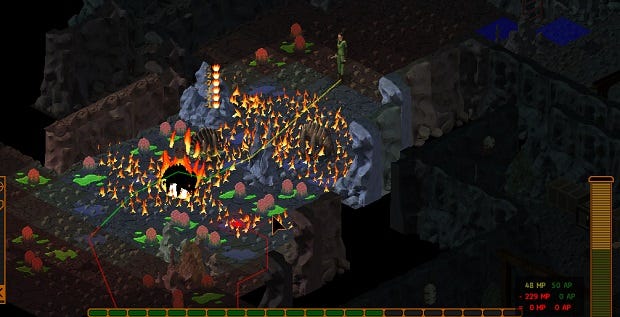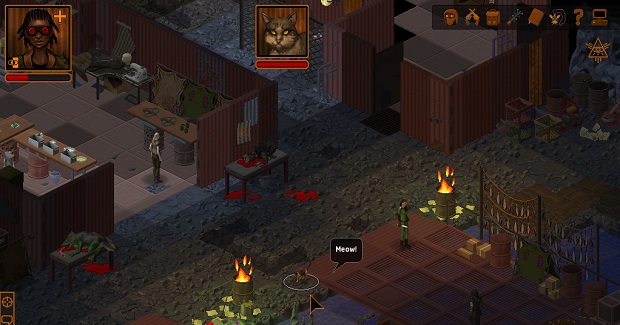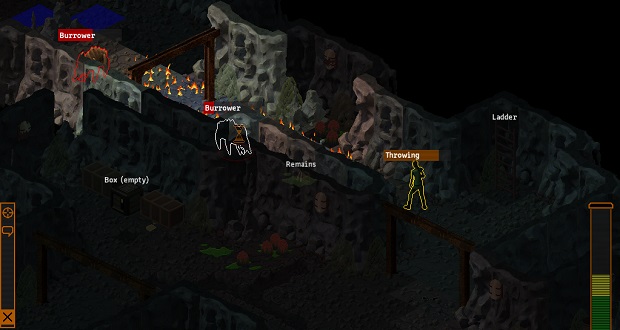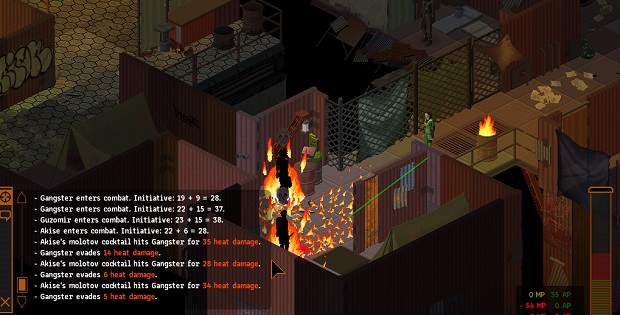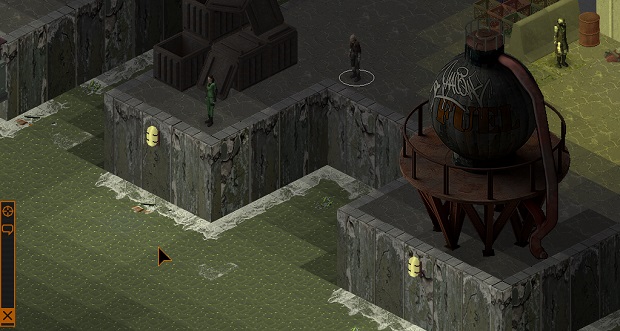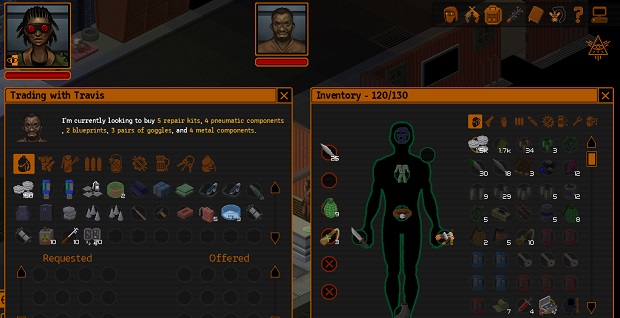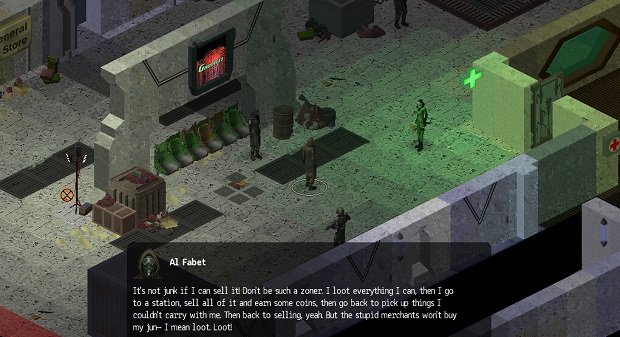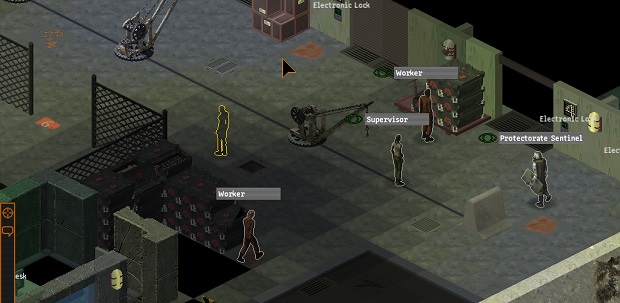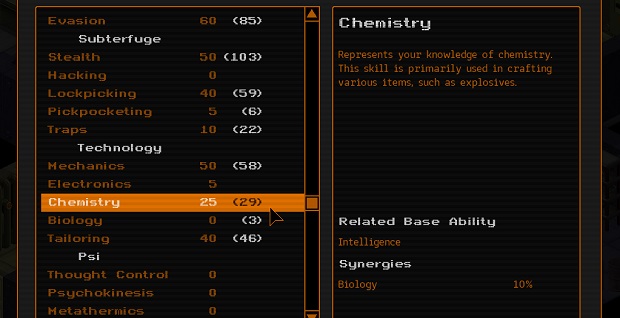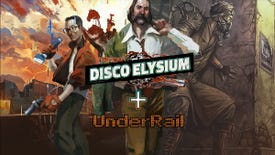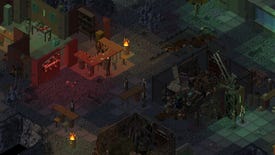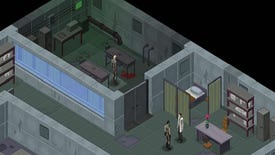Why I fell out with Fallout-inspired indie RPG Underrail
Trudge Dread
Underrail [official site] is a game that wants to be Fallout. That's okay! That's a legendary game for several reasons, and some are even good. There's definitely room for an RPG to be to Fallout what Xenonauts is to UFO: neither remake nor clone, but a new game that does all the same stuff we've missed, only without an interface from the Stupid Age.
Underrail, however, is not that game. It's a bold attempt, but ultimately one that misses too many marks, and copies too many notes from the Bumper Book Of Frustrating RPG Design We Still Have To Put Up With For Some Reason.
I wanted to like it, I really did. You can ask Graham! My original pitch was all "it's like Fallout or those old Infinity Engine RPGs, but with an interface designed for humans", because that's the initial impression it gives. Set in presumably the future, after, I assume, some sort of apocalypse, under probably an American city as far as I can tell, Underrail is an isometric RPG set in a drab and ugly world full of mutants, dustbins, and recklessly spiked leather jackets. It's divided into semi-independent, mostly impoverished camps, where all sorts of shady characters offer dodgy work. There's even a Junktown, and the murky, looping, almost ambient soundtrack could have been pilfered directly from an Interplay archive. It has the look and sound and some of the mood, and better yet, it has the sense to innovate, with a completely different interface and controls, and a similar but smartly streamlined skill and levelling system.
The latter is particularly noteworthy, as instead of reaching enlightenment by absorbing the souls of vanquished monsters or ticking tasks off your list, levels are gained by collecting curious artifacts from around the world. These are found in bins, rubble piles, lockers and so on. They're hidden away in electronically-locked boxes or rooms accessible only to mechanical types. Some accidentally fall out of the pockets of someone whose wallet you unintentionally bumped into, or whose big stupid face you bashed in with a sledgehammer. Each one of these 'oddities' adds a point, and when you have enough points, you reach the next level. Grinding doesn't work, as each flavour of oddity can only be used so many times, the rationale being that your character has learned all that they can from, say, a bandit's jewellery, or a copy of What Mutant? Magazine.
The idea is to encourage exploration with something less unnatural than "you need more xp, go stab rats", and to ensure that players can advance through means other than playing Mata Piñata. You'd think, also, that it would be a great excuse to fill the world with flavour text, telling you about the beasties you're fighting, the events that brought the world to this state, and the micro-societies whose members you're repeatedly kicking in the nadgers. But Underrail doesn't. It doesn't really do anything.
Despite the presence of skills like hacking, persuasion, and a pretty decent crafting setup, combat features heavily. The basics are sound; characters shuffle around and trade regular blows, livened up with the occasional grenade, net, or poisoned knife, and novelty weapons to be bought or built (crossbows being the most colourful thanks to their variety of bolts). Every few levels, you can take perks that grant a special stunning attack, or bonuses to homemade armour, or replenish movement points for killing. But combat becomes obnoxiously hard early on, mostly due to enemies having access to the same perks and equipment, and then some.
Even with all my perks devoted to doing damage and getting into positions to do more damage, there's simply too much random luck involved. Status effects stacking up when you're stabbing someone is great, but when you're fighting three people who can also stunlock you for 2 or 3 turns, missing a single special attack or taking one bad hit spells practically guaranteed death. There are cooldown timers on everything too - stealth, medkits, even grenades for god's sake - so while your options are arbitrarily limited, two enemies (and the very opening task has you fight several groups of - of fucking course - rats. Well, rathounds. So rats and wolves combined, because why limit yourself to one cliché? I look forward to the inevitable spidergoblin) can cycle their attacks, effortlessly immobilising, stunning and/or crippling you. Even on easy mode, too many fights come down to hoping that enemies will miss, against the odds.
One completely unannounced monster is stealthy (you can sometimes spot stealthy enemies if stealthed yourself and standing close. If you miss them... reload. Sometimes you can see them but still not attack them. Reload. Sometimes you can see them, attack them, and miss. Reload. Sensing a pattern?), with venomous attacks that also render you helpless. Taking control from the player is always annoying. The insult of bothering to start your turn when you can do absolutely nothing stings. The fact that there's a perk that lets you cancel status effects - but only some and with another bloody cooldown timer - twists my tendons. But all this put together is absolutely maddening. And I'd done plenty of exploring for those oddities to level up as much as possible by this point.
Even stealth lends itself to fighting better than to evasion, because dodging between multiple enemies randomly wandering in a very small space leads to yet more quicksave roulette. No game has ever paired real-time wandering with turn-based combat without causing severe friction. Here it's at least non-binary, as enemies become gradually more aware of you rather than toggling between oblivious and aggressive. But that's no help if your pathing takes you blundering into them, or if they follow you as you try to creep away. Oh, and speaking of pathing and controls, for the love of god, if you're making a turn based game, give us the option to confirm our orders. Underrail has a nasty habit of misinterpreting clicks in combat, adding more chances to instantly doom yourself. A simple double click order system would remove this entirely. Even OpenXcom has this feature.
Movement brings me to another bugbear, one that it's really unfair to single Underrail out for: the trudging. Oh god, the trudging. More than almost any of the litany of ancient irritants sprinkled into every RPG since Hammurabi first whalloped his brother with a +2 Axe of Nerding, I am tired of RPGs that make me trudge. Here we have a world whose difficulty demands levelling, which in turn demands exploration of all the side tunnels you can find (standard encounter rules apply: the only way to gauge a fight is to save the game, then let them kill you). All areas are interconnected with other screens; there's no overworld map at all. There is a fast travel option between settlements, but you still need to explore, and still need to get across the settlements.
This adds up to endless plodding from one end of an empty screen to another, even more slowly if you're stealthed, and if you're not, you'll get killed before long and have to do it all over again anyway. You can't even bloody run. The opening settlement has nine floors, with taskmasters and merchants spread across most of them. I have to talk to Ben? Okay, which one was Ben? I think he was on Floor 4. Trudge trudge trudge. No wait, I need to get my stuff from my locker to sell to him as he's the only person who buys clothes. Trudge trudge trudge. Oh wait, that's not Ben. I'd best check all the other floors. Trudge trudge bloody trudge. It's so slow.
I started playing it in a window so I could do something else while waiting for my character to stroll home. This isn't a good sign, y'know? Oblivion's looping dungeons might have been silly, but they saved some of us from days of pointlessly clomping about.
All this might not be fatal. However difficult, slow, or arbitrary it got, Underrail might have recovered. None of these faults, as I've said, is all that uncommon. But the real problem with Underrail is a question that throws all of its shortcomings into focus:
What the hell am I doing here?
I've played for dozens of hours according to in-game timers (which don't account for time lost to undone dead ends and the many, many reloads), and I still have very little idea what the plot is. I'm a new person joining a settlement, presumably for reasons. I'm taken to a private room and... kind of blunder aimlessly about the place until I meet the right NPC, then do a few chores because he says so. At no point is there any way to find out much about the world, its past, the people in it, what to expect from the game, or to care in the slightest about anything at all. Oh, several characters can be interrogated about three or four factions who... exist. Except that they don't really, so help me out here, game! Have them do something. Have a representative in the starter town! Have polarised arguments about them in the canteen. Don't just rattle off their boring names and some lukewarm politics.
By the time a likely overarching force of villains arrived I was past caring (not helped by their total invulnerability - more trudging to get there and find that out and then return, thanks game), and I can only remember one NPC by name because it reminds me of Gorky-17, a mediocrity I'm suddenly looking back on fondly for having far more personality.
I'll give you an example. One early scene has an NPC, Soldier Guy, struggle to open a vault, only to quickly close it again with horror as he sees something inside. He refuses to let anyone in, so surely this is foreshadowing some terrible evil about to be unleashed? Nope. I trudge all the way back to HQ, talk to Science Guy, trudge back to Soldier Guy, and then trudge all the way back to the vault again, then go in and stab the monsters inside. I've already fought things like them in another cave anyway. What a waste.
Even at their worst, the games Underrail is inspired by had strong narrative hooks to contextualise a player's decisions, and give incentive to go on through stickier patches. Fallout had the water chip (followed by the bigger threat you inevitably stumble across one way or the other by pursuing that goal), Planescape had Nameless One's identity and the tragic fate of Mrs One, Baldur's Gate had the cliché but reliable "why'd this sumbitch kill everyone?". Without that, all of those games would have stumbled badly (don't tell me you played Planescape for the combat), and it'd probably be their undeniable flaws that we talk about today, rather than their strengths.
There are people who enjoy Underrail, and I honestly envy them. I can't call them wrong, because I can see the germ of something great in it. It's as close as anything has come to recreating that world we lost to a sea of ironic trilbies and Pipboy bobbleheads, and it clearly aimed to innovate rather than merely imitate. But while its tone and aesthetic goes beyond the shallow iconography of Bethesda's sequels, it gives me too few reasons to follow, and too many to stay inside the Vault.
